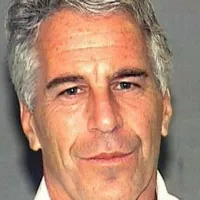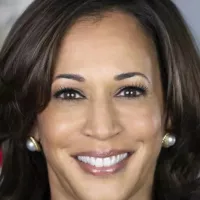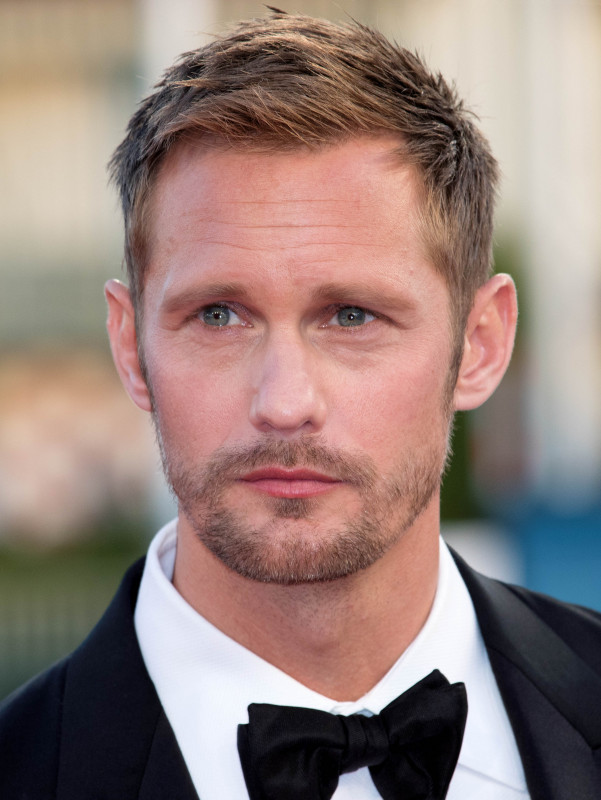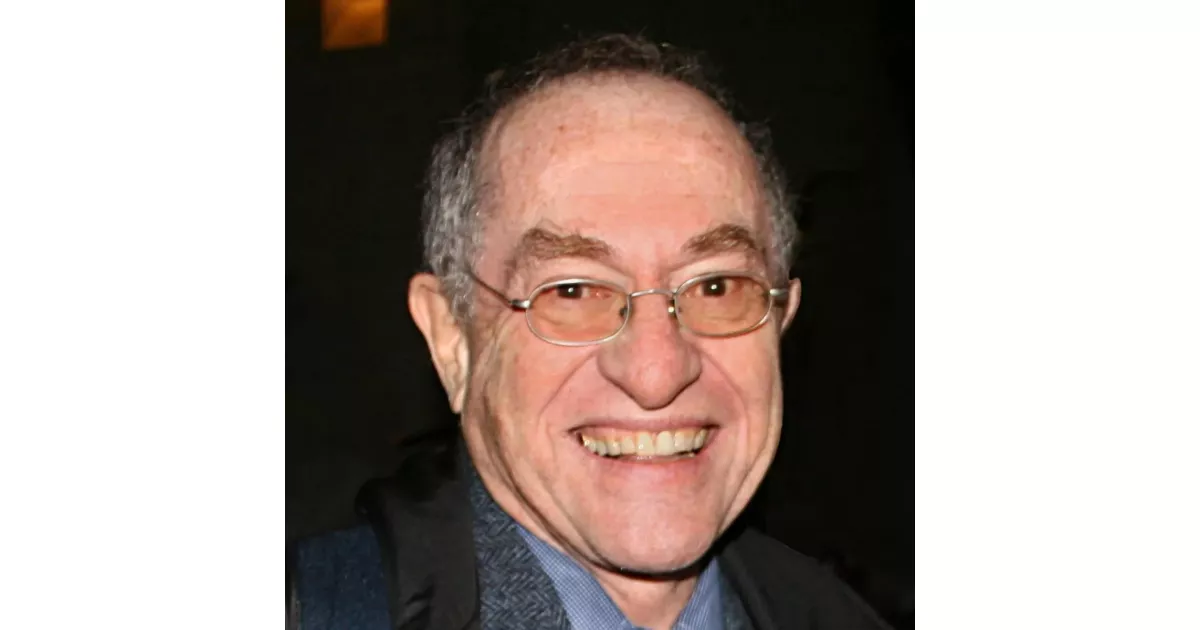How Alan Dershowitz built a successful career. Explore key moments that defined the journey.
Alan Dershowitz is an American lawyer and law professor, most notably at Harvard Law School from 1964 to 2013, becoming the Felix Frankfurter Professor of Law in 1993. He is known for his expertise in U.S. constitutional and criminal law. Dershowitz is a frequent media commentator, political analyst, and legal expert, often involved in high-profile cases and expressing his views on a range of legal and political topics.
1962: Law Clerk for Judge David L. Bazelon
From 1962 to 1963, Alan Dershowitz was a law clerk for Chief Judge David L. Bazelon of the U.S. Court of Appeals for the District of Columbia Circuit.
1963: Continued Clerkship with Judge Bazelon
In 1963, Alan Dershowitz continued his role as a law clerk for Chief Judge David L. Bazelon of the U.S. Court of Appeals.
1963: Wrote Memo Against Death Penalty
In 1963, while a law clerk to Justice Arthur Goldberg, Alan Dershowitz wrote a memo arguing that the death penalty violated the Eighth Amendment. This memo was sent to the NAACP LDF and the ACLU, contributing to a campaign against the death penalty.
1964: Clerked for Justice Arthur Goldberg
From 1963 to 1964, Alan Dershowitz clerked for Justice Arthur Goldberg of the U.S. Supreme Court.
1964: Joined Harvard Law School
In 1964, Alan Dershowitz joined Harvard Law School as an assistant professor.
1967: Made Full Professor at Harvard Law School
In 1967, Alan Dershowitz was made a full professor at Harvard Law School at the age of 28.
1967: De Facto Moratorium on Executions Began
In 1967, following a campaign against the death penalty that included Dershowitz's 1963 memo, a de facto moratorium on executions began in the United States.
1972: Furman v. Georgia Supreme Court Case
In 1972, the Supreme Court case Furman v. Georgia, influenced by the campaign against the death penalty, found the death penalty as currently applied unconstitutional.
1976: Successful appeal for Harry Reems
In 1976, Alan Dershowitz had a major legal victory with a successful appeal that overturned the conviction for Harry Reems.
1976: Gregg v. Georgia Supreme Court Case
In 1976, the Supreme Court case Gregg v. Georgia upheld numerous states' revised death penalty statutes.
1980: Represented Claus von Bülow
In 1980, Alan Dershowitz represented Claus von Bülow at his appeal for the attempted murder of his wife, Sunny von Bülow.
1983: Received William O. Douglas First Amendment Award
In 1983, Alan Dershowitz received the William O. Douglas First Amendment Award from the Anti-Defamation League for his work on civil rights.
1984: Successful appeal for Claus von Bülow
In 1984, Alan Dershowitz had a major legal victory with a successful appeal that overturned the conviction for Claus von Bülow, who had been convicted of the attempted murder of his wife, Sunny.
1985: Published "Reversal of Fortune: Inside the von Bülow Case"
In 1985, Alan Dershowitz published "Reversal of Fortune: Inside the von Bülow Case", which became the basis for the 1990 film.
1985: Published 'Reversal of Fortune'
In 1985, Alan Dershowitz told the story of the case in his book Reversal of Fortune: Inside the von Bülow case.
1991: Published "Chutzpah"
In 1991, Alan Dershowitz published his book "Chutzpah".
1991: Book "Chutzpah" Published
In 1991, Dershowitz's account of the lawsuit against Cardinal Józef Glemp appears in his book "Chutzpah".
1993: Appointed Felix Frankfurter Professor of Law
In 1993, Alan Dershowitz was appointed as the Felix Frankfurter Professor of Law at Harvard Law School.
1995: Appellate adviser on O.J. Simpson murder trial
In 1995, Alan Dershowitz served as the appellate adviser on the murder trial of O. J. Simpson as part of the legal "Dream Team".
1996: Book Published About O. J. Simpson Case
In 1996, Alan Dershowitz published a book about the O. J. Simpson case, titled Reasonable Doubts: The Criminal Justice System and the O. J. Simpson Case.
1996: Published "Reasonable Doubts: The Criminal Justice System and the O. J. Simpson Case"
In 1996, Alan Dershowitz published his book "Reasonable Doubts: The Criminal Justice System and the O. J. Simpson Case".
March 2002: Published "New Response to Palestinian Terrorism"
In March 2002, Alan Dershowitz published an article in The Jerusalem Post titled "New Response to Palestinian Terrorism," proposing that Israel announce a unilateral cessation in retaliation, followed by a clear declaration of actions to be taken in response to future acts of terrorism, such as destroying a village used as a base for terrorist operations. This proposal drew criticism for potentially violating international law and being morally comparable to Nazi actions.
2002: Petition and Debate at Harvard
In the spring of 2002, after a petition calling for Harvard and MIT to divest from Israeli and American companies that sell arms to Israel garnered over 600 signatures, Dershowitz staged a debate for 200 students, calling the signatories antisemitic bigots and criticizing Harvard's Winthrop House Master Paul D. Hanson. He also threatened to sue professors opposing tenure based on candidates' positions on Israel.
2003: Published "The Case for Israel"
In 2003, Alan Dershowitz published his book "The Case for Israel".
2003: Plagiarism Allegations Regarding 'The Case for Israel'
Shortly after the publication of Alan Dershowitz's book 'The Case for Israel' in 2003, Norman Finkelstein accused it of containing material plagiarized from Joan Peters' book 'From Time Immemorial'. Dershowitz denied the allegation, and Harvard's president determined that no plagiarism had occurred, though Los Angeles attorney Frank Menetrez supported Finkelstein's charges.
2004: Published 'Rights from Wrongs'
In 2004, Alan Dershowitz published 'Rights from Wrongs: A Secular Theory of the Origins of Rights', where he discussed the concept of speciesism and the responsibility humans have to treat animals fairly.
2005: Published "The Case for Peace"
In 2005, Alan Dershowitz published his book "The Case for Peace".
March 2006: Response to "The Israel Lobby and U.S. Foreign Policy"
In March 2006, after John Mearsheimer and Stephen Walt published "The Israel Lobby and U.S. Foreign Policy", Alan Dershowitz criticized the paper, calling its authors "liars" and "bigots". He suggested the paper had been derived from hate sites.
May 2006: Mearsheimer and Walt Denied Using Racist Sources
In May 2006, Mearsheimer and Walt denied that they had used any racist sources for their article "The Israel Lobby and U.S. Foreign Policy", writing that Dershowitz had failed to offer any evidence to support his claim.
July 2006: Defended IDF Conduct During Israel-Lebanon Conflict
In July 2006, Alan Dershowitz wrote a series of articles defending the Israel Defense Forces' conduct during the 2006 Israel–Lebanon conflict. He criticized UN High Commissioner for Human Rights Louise Arbour for suggesting that Israeli officials might be investigated for war crimes, and argued that Israel was not to blame for civilian deaths.
October 2006: Lobbied Against Finkelstein's Tenure
In October 2006, Alan Dershowitz wrote to DePaul University faculty members to lobby against Norman Finkelstein's application for tenure, accusing Finkelstein of academic dishonesty.
2006: Argued for Prosecution of Iranian President
In 2006, Alan Dershowitz argued for the prosecution of Iranian president Mahmoud Ahmedinejad for incitement to genocide based on his threat of "wiping Israel off the map".
2006: Negotiated non-prosecution agreement for Jeffrey Epstein
In 2006, Alan Dershowitz helped negotiate a non-prosecution agreement on Jeffrey Epstein's behalf.
June 2007: Finkelstein Denied Tenure
In June 2007, DePaul University denied Norman Finkelstein tenure.
November 2007: Awarded the Soviet Jewry Freedom Award
In November 2007, Alan Dershowitz was awarded the Soviet Jewry Freedom Award by the Russian Jewish Community Foundation.
2008: Endorsed Hillary Clinton
During the 2008 Democratic Party primaries, Alan Dershowitz endorsed Hillary Clinton, praising her as a progressive on social issues, a realist on foreign policy, and a pragmatist on the economy.
2009: Won 13 of 15 murder and attempted murder cases
As of 2009, Alan Dershowitz had won 13 of the 15 murder and attempted murder cases he handled as a criminal appellate lawyer.
December 2011: Awarded the Menachem Begin Award of Honor
In December 2011, Alan Dershowitz was awarded the Menachem Begin Award of Honor by the Menachem Begin Heritage Center at an event co-sponsored by NGO Monitor.
2011: Consultant for Julian Assange's legal team
In 2011, Alan Dershowitz served as a consultant for Julian Assange's legal team.
February 29, 2012: Amicus Brief Filed in Support of MEK
On February 29, 2012, Alan Dershowitz filed an amicus brief in support of delisting the People's Mujahedin of Iran (MEK) from the State Department list of foreign terrorist organizations.
2012: Supported Barack Obama's Reelection
In 2012, Alan Dershowitz strongly supported Barack Obama's reelection, citing his judicial appointments, foreign policy, and improvements to the economy.
2013: Retired from Harvard Law
In 2013, Alan Dershowitz retired from teaching at Harvard Law School.
2015: Authored 'The Case Against the Iran Deal'
In 2015, Alan Dershowitz's book, The Case Against the Iran Deal, argued that the Supreme Leader of Iran, Ali Khamenei, had urged the Iranian military "to have two nuclear bombs ready to go off in January 2005 or you're not Muslims".
2016: Commented on Russian Meddling in Election
In January 2018, Alan Dershowitz claimed that "collusion" in reference to Russian meddling in the 2016 election is not a crime.
January 2018: Commented on Trump Investigations
In January 2018, Alan Dershowitz said that attacking Trump's mental fitness was "very dangerous" and that there was "no case" that Trump committed obstruction of justice by firing former FBI Director James Comey. He also called the indictment of Michael Flynn the strangest he had ever seen and claimed that "collusion" in reference to Russian meddling in the 2016 election is not a crime.
May 2018: Joined Harvey Weinstein's legal team as consultant
In May 2018, Alan Dershowitz joined Harvey Weinstein's legal team as a consultant for Weinstein's lawyer Benjamin Brafman.
June 2018: Criticized ACLU
In June 2018, Alan Dershowitz wrote an op-ed criticizing the American Civil Liberties Union, alleging it had become a hyper-partisan organization. He also criticized Trump, writing that by denying fundamental civil liberties, he was also to blame for pushing the ACLU further into partisan politics.
2018: Published "The Case Against Impeaching Trump"
In 2018, Alan Dershowitz published his book "The Case Against Impeaching Trump".
2018: Member of Harvey Weinstein's defense team
In 2018, Alan Dershowitz was a member of Harvey Weinstein's defense team.
2018: Expressed Regret Over Obama Support
In 2018, after a photo with Obama and Nation of Islam leader Louis Farrakhan at a 2005 meeting emerged, Alan Dershowitz said he would not have campaigned for Obama had the photo been publicized sooner.
2019: Appearance in documentary No Safe Spaces
In 2019, Alan Dershowitz appeared as himself in the documentary No Safe Spaces.
2019: Published "Guilt by Accusation: The Challenge of Proving Innocence in the Age of #MeToo"
In 2019, Alan Dershowitz published "Guilt by Accusation: The Challenge of Proving Innocence in the Age of #MeToo".
2019: Expressed Support for Joe Biden
In 2019, Alan Dershowitz said he would "enthusiastically support Joe Biden" for president.
January 2020: Joined Trump's Impeachment Defense Team
In January 2020, Alan Dershowitz joined President Donald Trump's legal team as Trump was being tried on impeachment charges in the Senate. He stated he would not accept any compensation and would donate it to charity if paid.
2020: Member of Donald Trump's defense team
In 2020, Alan Dershowitz was a member of President Donald Trump's defense team in his first impeachment trial.
2020: Endorsed Joe Biden, Criticized Bernie Sanders
In the 2020 Democratic Party primaries, Alan Dershowitz endorsed Joe Biden, expressing strong support. He criticized Bernie Sanders for campaigning for Jeremy Corbyn.
2021: Commented on Trump's Rally and Potential Defense
In 2021, Alan Dershowitz said that Trump's rally preceding the 2021 storming of the United States Capitol was "constitutionally protected" speech. He offered to defend Trump in a trial.
Mentioned in this timeline

Donald John Trump is an American politician media personality and...

Jeffrey Epstein was an American financier and convicted sex offender...

Barack Obama the th U S President - was the...

Hillary Diane Rodham Clinton is an American politician lawyer and...

Joe Biden a member of the Democratic Party served as...

Kamala Devi Harris is an American politician and attorney notable...
Trending

Eugenio Derbez is a highly successful Mexican actor and comedian renowned for his work in both Spanish and English language...

2 months ago Angela Bassett As Queen Ramonda Stuns At Vogue World 2025; Black Panther Tribute.

8 months ago Tesla Board Initiated CEO Search to Replace Elon Musk Amidst Leadership Concerns.

9 months ago Milo Manheim and Liz Gillies bond in Little Shop of Horrors, extend run.

1 month ago Alexander Skarsgård reminds Miriam Margolyes of their meeting; addresses sexuality question, states 'not really' gay.

2 months ago Jeremy Renner faces accusations of ICE threat and misconduct controversy in Hollywood.
Popular

Stranger Things created by the Duffer Brothers is a popular...

XXXTentacion born Jahseh Dwayne Ricardo Onfroy was a controversial yet...

Kelsey Grammer is an accomplished American actor producer and singer...

Candace Owens is an American conservative political commentator and author...

Bernie Sanders is a prominent American politician currently serving as...

Melania Trump a Slovenian-American former model has served as First...
